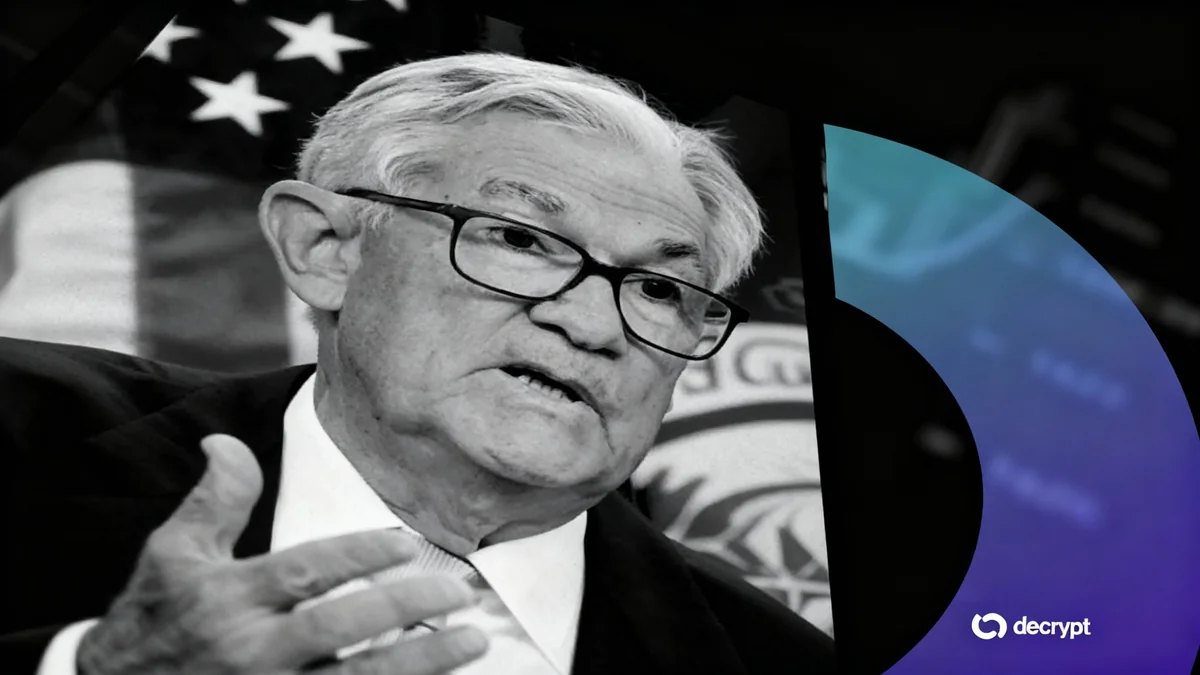A significant debate has emerged within the Bitcoin community following allegations that a long-serving developer, Luke Dashjr, proposed a fundamental change to the network's protocol. The developer has strongly refuted these claims, describing them as a smear campaign intended to undermine his work on the Bitcoin network.
The controversy began on September 25 after an article claimed Dashjr advocated for a hard fork that would introduce a committee with the power to alter the blockchain. This has intensified an ongoing discussion about Bitcoin's core principles of immutability and censorship resistance.
Key Takeaways
- A media report alleged that Bitcoin developer Luke Dashjr proposed a hard fork to create a committee capable of altering the blockchain.
- Dashjr has unequivocally denied these allegations, stating he has not proposed any such change.
- The dispute highlights the philosophical and technical divide between Dashjr's Bitcoin Knots software and the more widely used Bitcoin Core.
- An unexpected defense came from Udi Wertheimer, a proponent of Ordinals, who labeled the original report as "fake news" and a "hit piece."
Allegations of a Radical Protocol Change
The controversy was ignited by an article from a publication called The Rage. The report cited what it claimed were leaked text messages from Luke Dashjr, who is the maintainer of the Bitcoin Knots software client.
According to the article, these messages suggested Dashjr was advocating for a hard fork. A hard fork is a permanent and irreversible split in a blockchain's protocol, making the new version incompatible with the old one. All network participants must upgrade to follow the new chain.
The purported plan involved creating a trusted multisignature committee. This group would allegedly have the authority to retroactively change the Bitcoin blockchain, review transactions, and remove content deemed illicit. The article included a quote allegedly from Dashjr: “Either Bitcoin dies or we have to trust someone.”
What is Bitcoin Immutability?
Immutability is a core feature of Bitcoin, meaning that once a transaction is confirmed and added to the blockchain, it cannot be altered or deleted. This principle is fundamental to the network's security and trust, as it prevents censorship and ensures the integrity of the transaction history. Any proposal that introduces a mechanism to retroactively alter the blockchain is seen by many as a direct threat to this foundational concept.
Developer Issues a Strong Denial
In response to the article, which gained significant traction on the social media platform X, Luke Dashjr issued a series of strong denials. He stated that the claims were entirely false and part of a coordinated effort to damage his reputation.
“The truth is I have not proposed a hardfork or anything of the sort, and these bad actors are just grasping at straws to slander me and try to undermine my efforts to save Bitcoin again,” Dashjr wrote.
He reiterated his position multiple times over the following hours to dispel any confusion. In one post, he stated, “Nope, nothing changed. Nobody is calling for a hard fork still.” In another direct reply, he emphasized, “There is no hard fork.”
Dashjr’s supporters argue that the allegations are a deliberate misrepresentation of his views, designed to derail his long-standing efforts to filter what he considers spam from the Bitcoin network.
The Philosophical Divide: Bitcoin Knots vs. Bitcoin Core
This incident brings a long-simmering technical and philosophical debate to the forefront. The dispute centers on the different approaches of two major Bitcoin software clients: Bitcoin Core and Bitcoin Knots.
Most of the Bitcoin network operates on Bitcoin Core, which has historically maintained a more permissive stance on the types of data that can be included in transactions. As long as transactions adhere to the network's consensus rules, Bitcoin Core generally allows them.
In contrast, Bitcoin Knots, maintained by Dashjr, enforces much stricter rules. It is designed to block transactions containing non-financial data. This includes popular recent innovations such as:
- Ordinals inscriptions: These allow for the creation of NFT-like assets by inscribing data, such as images or text, onto individual satoshis, the smallest unit of Bitcoin.
- Runes tokens: A newer protocol for creating fungible tokens on the Bitcoin network.
Dashjr and his supporters argue that these types of transactions constitute “spam” and threaten Bitcoin's primary function as a monetary network. They believe filtering this data is necessary to protect Bitcoin’s integrity and shield it from potential regulatory risks associated with non-financial content on the blockchain.
Network Software Distribution
While exact figures are difficult to ascertain, it is widely understood that Bitcoin Core is the dominant software client used by nodes on the Bitcoin network. Alternative clients like Bitcoin Knots represent a much smaller fraction of the network, making any unilateral changes proposed by them unlikely to gain network-wide consensus without broad support.
An Unlikely Defender Emerges
One of the most surprising voices to come to Dashjr's defense was Udi Wertheimer, a co-founder of Taproot Wizards, a prominent Bitcoin Ordinals project. Given that Dashjr's Bitcoin Knots software is designed to block projects like Wertheimer's, his intervention was unexpected.
Wertheimer dismissed the article from The Rage as misleading and inaccurate. “Not a Luke fan but this is a hit piece and fake news. He is not proposing this,” Wertheimer posted on X, referring to the alleged hard fork plan.
He further described the article as a "sloppy low quality propaganda piece." According to Wertheimer, the leaked messages were likely taken out of context. He suggested they were part of a hypothetical discussion about using advanced cryptographic methods, known as zero-knowledge proofs, to allow Bitcoin Knots nodes to avoid downloading data they classify as spam, without splitting the network.
"It's pretty obvious to me that this proposal never gets implemented, and even if it did, it does not censor the network and does not split the network, and remains fully compatible with core," Wertheimer concluded, referring to the hypothetical idea as a "nothing burger."
Market Impact and Lingering Uncertainty
While it is impossible to draw a direct causal link, the timing of the controversy coincided with a downturn in Bitcoin's price. In the 24 hours following the escalation of the debate, the price of Bitcoin fell by 2.2%. Over the preceding week, the digital asset had already declined by more than 5.5%.
In the cryptocurrency markets, even the perception of internal conflict or protocol instability can create uncertainty. Rumors about potential hard forks or challenges to a network's core principles often contribute to negative sentiment among investors, which can amplify downward price pressure.
The incident serves as a reminder of the ongoing debates within the Bitcoin community about its future direction, scalability, and the very definition of a valid transaction. While the immediate crisis over a hard fork appears to have been based on disputed claims, the underlying tensions remain.





